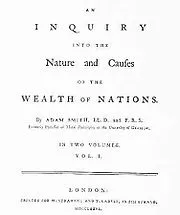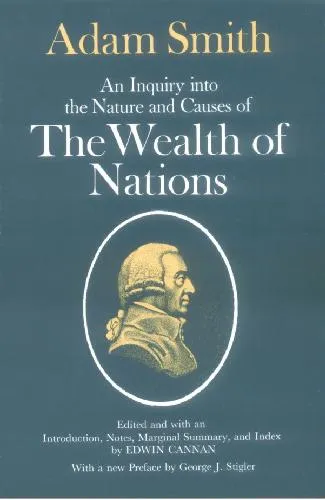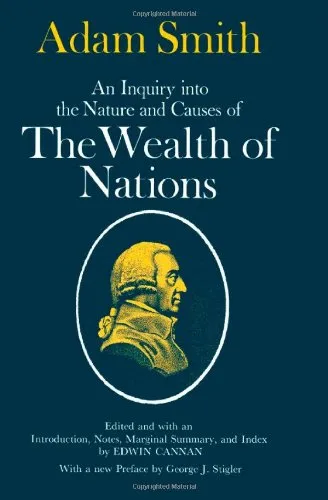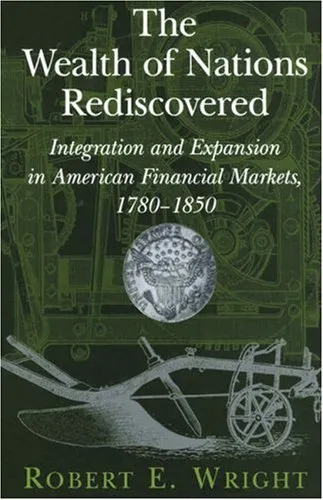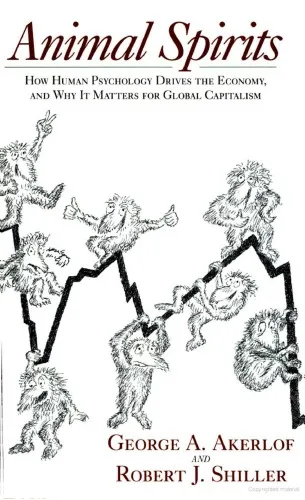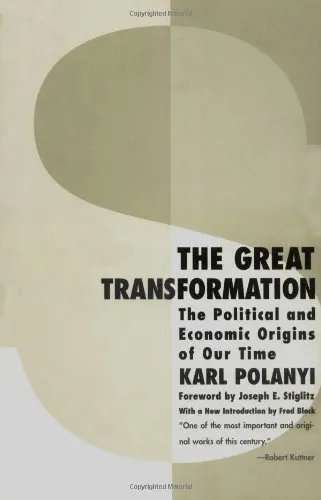Adam Smith - An Inquiry Into The Nature And Causes Of The Wealth Of Nations
4.5
Reviews from our users

You Can Ask your questions from this book's AI after Login
Each download or ask from book AI costs 2 points. To earn more free points, please visit the Points Guide Page and complete some valuable actions.Related Refrences:
Introduction to 'Adam Smith - An Inquiry Into The Nature And Causes Of The Wealth Of Nations'
Welcome to a deep dive into one of the most influential works in economic literature. This book, commonly known as 'The Wealth of Nations', was written by the father of modern economics, Adam Smith. Originally published in 1776, it laid the analytical foundation for the study of economics and provided profound insights into the mechanisms of market economies.
Detailed Summary of the Book
The Wealth of Nations is structured into five books covering different aspects of economic thought. Book I deals with the concept of the division of labor, which Smith posits as a key driver of economic efficiency and innovation. He famously illustrates this idea through the example of a pin factory, demonstrating how specialization can dramatically increase productivity.
Book II discusses the nature of capital and its accumulation, essential for sustaining economic growth and facilitating the division of labor. Smith delineates the role of stock and money, explaining how these elements differ across various economic activities.
Book III explores the development of wealth across different nations, considering historical contexts and varying domestic circumstances that influence economic progression or stagnation. In Book IV, Smith critiques contemporary economic policies, such as mercantilism, and advocates instead for free trade, embodying the idea of 'laissez-faire' economics.
Finally, Book V addresses the role of government, outlining its duties in defense, justice, public works, and education while cautioning against unnecessary intervention. Through this thorough discourse, Smith presents a vision where economic liberty underpins national prosperity.
Key Takeaways
- Markets thrive on the principle of self-interest which, when properly aligned with competitive mechanisms, results in societal benefits.
- A division of labor significantly enhances productivity and is a cornerstone of economic development.
- Free trade is beneficial, promoting efficiency and innovation by allowing countries to specialize based on comparative advantage.
- Government roles should be confined to defense, law enforcement, public infrastructure, and education, avoiding excessive economic intervention.
Famous Quotes from the Book
"It is not from the benevolence of the butcher, the brewer, or the baker that we expect our dinner, but from their regard to their own interest."
"The invisible hand guides each individual to pursue personal gain while indirectly benefiting society as a whole."
"By pursuing his own interest he frequently promotes that of the society more effectually than when he really intends to promote it."
Why This Book Matters
Adam Smith's seminal work is more than a reflection on economic theory; it is a comprehensive inquiry into the human condition and the societal fabric. It provides insights into the mechanisms through which freedom and economic prosperity can be achieved. Through his systematic exploration of economic principles, Smith challenges policymakers to reconsider the nature of economic interactions and state intervention.
As foundational literature in economics, 'The Wealth of Nations' has informed countless economic policies and remains imperative in the discourse on global capitalism. It offers invaluable wisdom to anyone seeking to understand the complexities and intricacies of economies, both in Smith's time and today.
In reading this book, you engage not only with history but with ongoing debates and discussions that shape modern economic thought and policy worldwide.
Free Direct Download
You Can Download this book after Login
Accessing books through legal platforms and public libraries not only supports the rights of authors and publishers but also contributes to the sustainability of reading culture. Before downloading, please take a moment to consider these options.
Find this book on other platforms:
WorldCat helps you find books in libraries worldwide.
See ratings, reviews, and discussions on Goodreads.
Find and buy rare or used books on AbeBooks.
1547
بازدید4.5
امتیاز0
نظر98%
رضایتReviews:
4.5
Based on 0 users review
Questions & Answers
Ask questions about this book or help others by answering
No questions yet. Be the first to ask!
